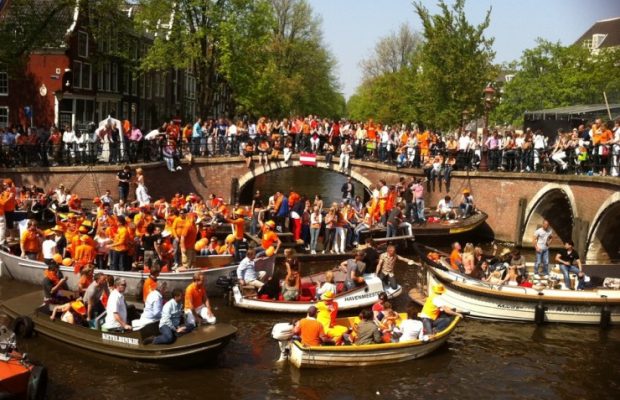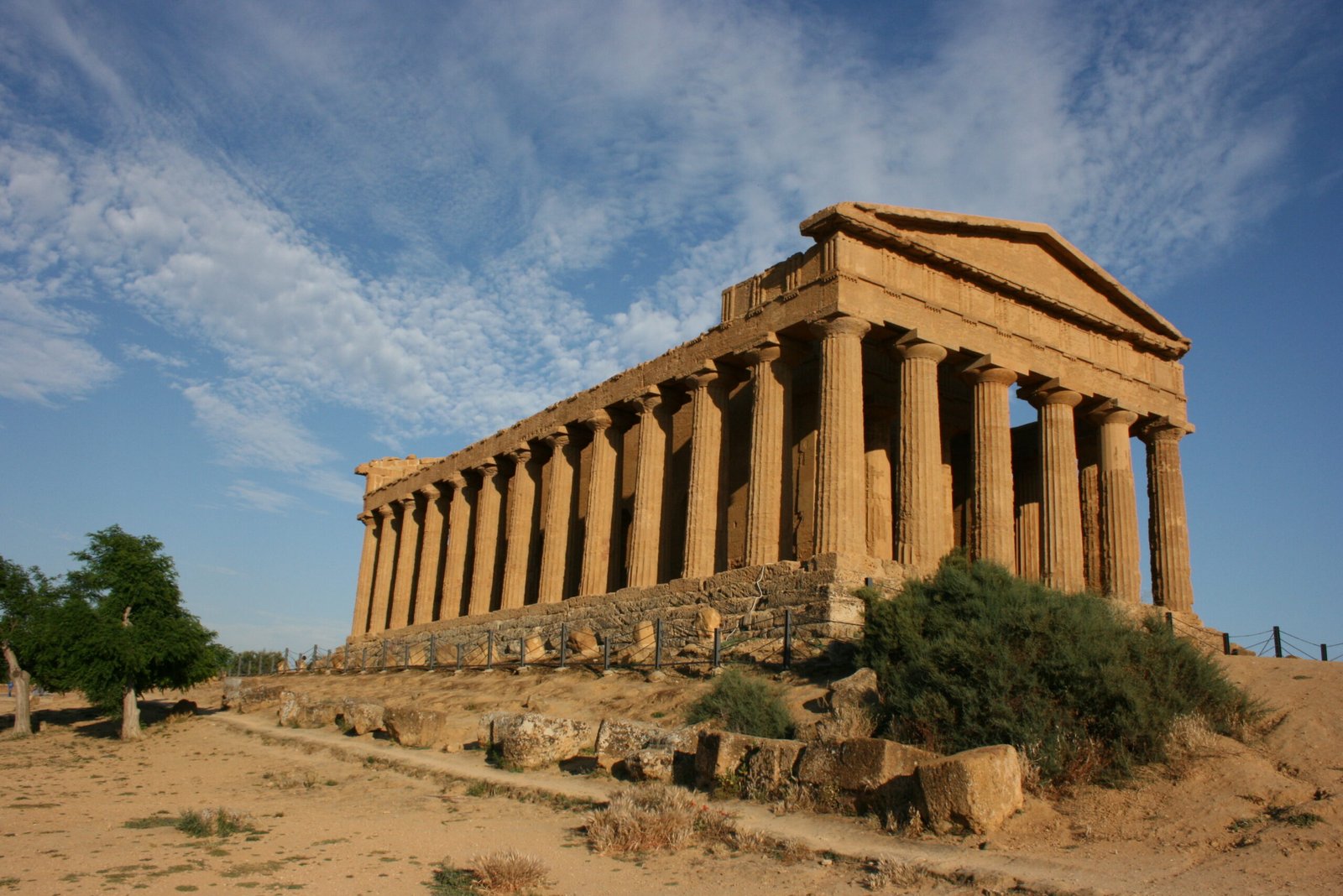How to Prop Up a Monarchy – Amsterdam and the King’s Day Tradition:
The Dutch are wild about the yearly King’s Day national holiday, and Amsterdam, as the nation’s capital, is the epicentre of all this excitement. For such an intensely liberal city the fervour with which Konnigsdag is celebrated is truly remarkable.
For one day the city becomes drenched in orange, the colour of the Dutch Royal House, national flags fly on every street and huge street parties spill across the cobbles. The canals become chocked with revellers in innumerable vessels of kaleidoscopic shapes and sizes, each rammed to the gills with locals and visitors enjoying a King’s day Amsterdam boat party. Amsterdam King’s Day Private Boat hires are incredibly popular and many people book months in advance.
For many King’s Day is considered simply a good opportunity to have a good time. For locals this is a good excuse to enjoy a Kings Day Amsterdam Boat Party, enjoy the street markets and attend the free outdoor concerts. But King’s Day actually has another traditional purpose – to maintain the popularity of the Dutch monarchy.
King’s Day was originally instituted in 1885 in an attempt to bolster the collapsing popularity of the Dutch Monarchy. At the time few people would have been interested in a King’s Day Private Boat Party.
King Willem III, the ruling monarch of the Netherlands at the time, was a violent, capricious bully. The King had a reputation from swinging from a warm, kindly disposition too sudden, occasionally physical, out bursts of rage and pique. He was well known for terrorizing his servants and humiliating his courtiers – in sum Willem III was the perfect example of the very worst of 19th century European royalty.
His spectacular lack of personal appeal was compounded by his profound political incompetence, and he was prone to ordering the dismissal, arrest and even execution of those he found lacking in respect (orders that were typically ignored).
Despite his stunning lack of appeal, Willem remained fairly popular with the lower classes. However, his popularity among his bourgeois liberal subjects plummeted. By 1885, this situation was approaching a crisis point, exacerbated by the King’s age, ailing health and increasing dementia.
His daughter and heir presumptive Princess Wilhelmina however, was fairly popular. Following a loosely observed tradition of national celebrations on the King’s birthday, a large scale celebration on the princess’ birthday was proposed by J.W.R Gerlach, a newspaper editor from Utrecht.
The celebrations held in Utrecht in 1885, were a remarkable success. By focussing on the young heir apparent, Prinsessedag or Princesses Day, was a huge success particularly with young children – the holiday fell on the same day as a school holiday. This no doubt contributed to the ongoing popularity of King’s/Queens Day – today it is one of the most popular holidays in the Netherlands.
King’s Day today continues to represent, at least aesthetically, a huge out pouring of traditional, monarchy orientated patriotism in the Netherlands. The popularity of Amsterdam King’s Day Boat Party services and Amsterdam Kings Day Private Boat hires arguably speaks volumes to the passion of the Dutch for this intensely monarchical celebration.
However, the truth is more complex – it is in many ways the story of a holiday that has developed a life of its own. In the same way that it is hard to clearly understand the relationship between rabbits, eggs, and the resurrection of Christ on Easter, Amsterdam’s Oranjegekte, orange madness, does not have a clear correlation with the popularity of the royal family.
For instance, this year’s King’s Day celebration was one of the biggest Amsterdam has ever seen – around 200,000 people were expected to enter the city to enjoy the festivities, despite forecasted cold weather. But despite huge enthusiasm for the festival, the House of Orange’s popularity is in decline.
A new survey for broadcaster Nos shows that support for the monarchy is down to 65%, its lowest level since 2008. In addition to this, it is clear that the youngest generation of the House of Orange is not afforded the same fondness that the Dutch show the elder generation – public confidence in the King is down to 66%, by comparison to former queen Beatrix, who has a popularity rating of 7.4 out of 10.
Since King Willem-Alexander took the throne in 2013, support for the monarchy has decline by 13% – However this does not mean a rise in support for a republic. As with many royal families in Europe the popularity of the Dutch Royal Family has been declining since the economic crisis of 2008. Whether this will lead to abolition is anyone’s guess, but traditions like King’s Day are becoming increasingly detached from their links to the monarchs they once celebrated.





